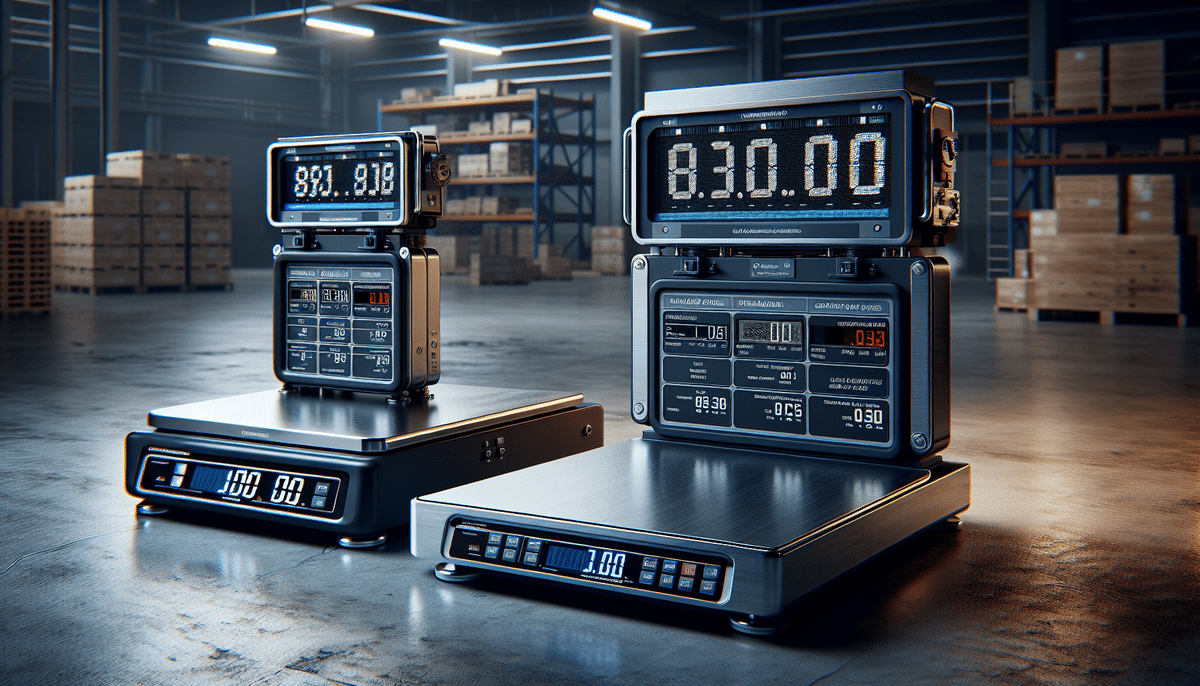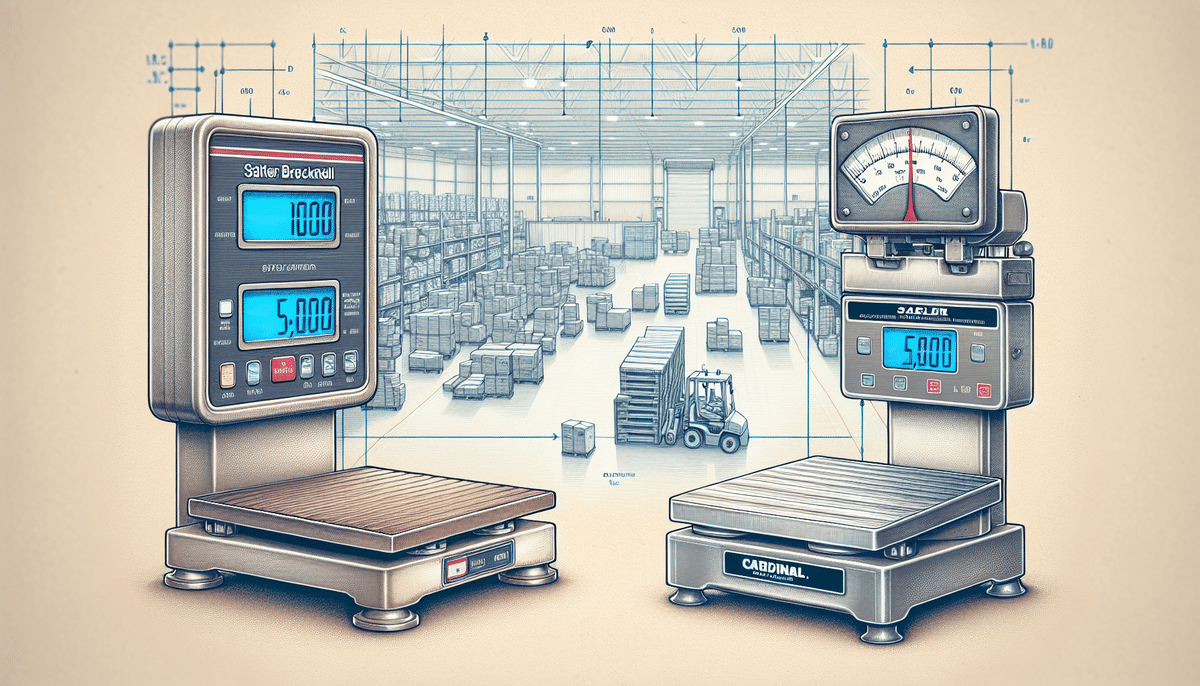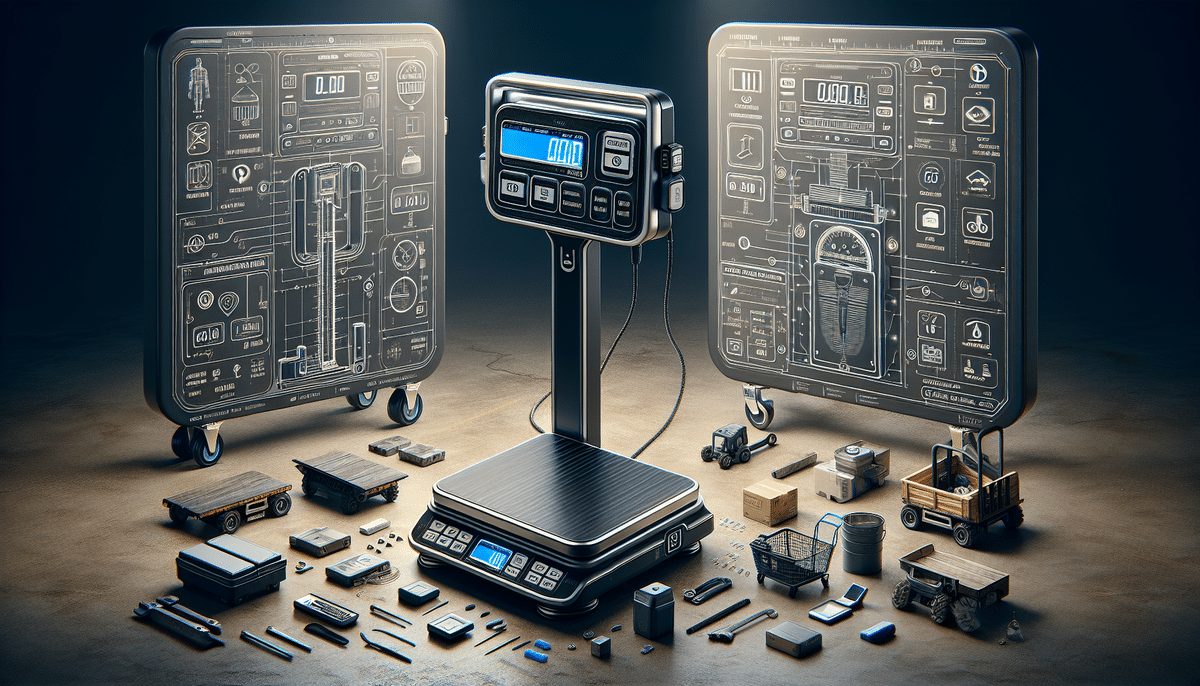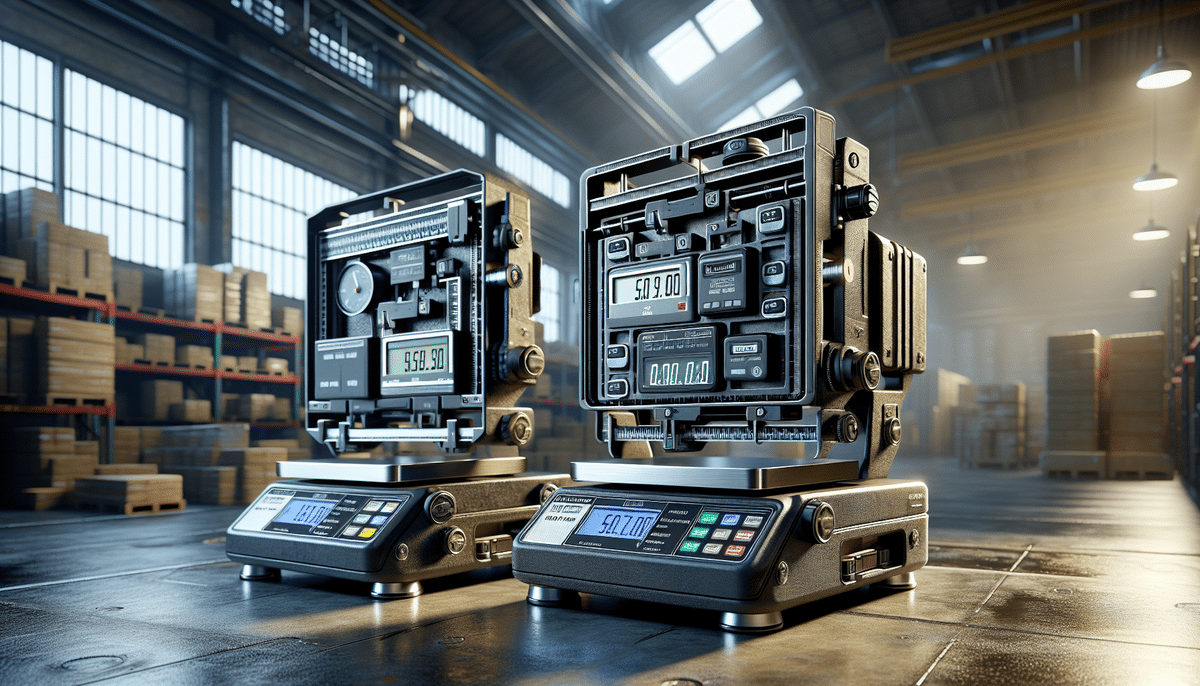Introduction: Choosing the Right Weighing Scale for Your Business
Selecting the appropriate scale is crucial for ensuring accurate measurements and efficient operations in your business. Accurate weighing can impact inventory management, pricing, and compliance with industry regulations. Here are the key factors to consider:
- Weight Range: Determine the maximum and minimum weights you need to measure. For heavy objects, a scale with a higher capacity is essential, whereas smaller items require higher resolution.
- Digital vs. Analog: Digital scales offer greater precision and easier readability, while analog scales are typically more durable with lower maintenance needs.
- Durability and Build Quality: Especially important for environments with frequent use or harsh conditions.
- Price: Compare different models to find the best value for your budget.
- Material Type: Ensure the scale is suitable for the materials you will be weighing, such as food items or hazardous chemicals.
- Certification: For trade purposes, ensure the scale meets regulatory standards and legal requirements.
Considering these factors will help you choose a scale that aligns with your specific business requirements.
Features Comparison
Salter Brecknell PS1000
The Salter Brecknell PS1000 is a robust digital floor scale designed for industrial and commercial use. Key features include:
- Capacity: 1000 kg (2200 lb)
- Resolution: 0.5 kg (1 lb)
- Platform: Spacious 4' x 4' steel platform with a diamond plate surface for enhanced traction and durability
- Load Cells: Four high-precision load cells for accurate measurements, with easy calibration options
- Power: Rechargeable battery lasting up to 100 hours and optional AC adapter
- Display: Built-in LCD display showing weight in kilograms or pounds, adjustable brightness and contrast
- Additional Features: Tare function, low profile design for easy access, integrated wheels for mobility, hold function to lock weight readings
- Warranty: One-year warranty
The PS1000 is praised for its user-friendly design, making it ideal for various industrial applications. Its large platform accommodates bulky items, while the high resolution ensures precise measurements.
PEC Scale
The PEC Scale is another high-quality digital floor scale tailored for diverse weighing needs. Its main features include:
- Capacity: 1500 kg (3300 lb)
- Resolution: 0.5 kg (1 lb)
- Platform: 3' x 3' steel platform with a smooth surface for easy cleaning
- Load Cells: Four shear beam load cells ensure reliable and accurate measurements, with calibration capabilities
- Power: Rechargeable battery lasting up to 60 hours and optional AC adapter
- Display: Built-in LED display with adjustable brightness and contrast
- Additional Features: Tare function, programmable auto-off to conserve battery life, low battery indicator, built-in overload protection
- Warranty: Two-year warranty
The PEC Scale stands out for its higher weight capacity and compact design, making it suitable for businesses requiring the measurement of heavier items without sacrificing space.
Performance Comparison
Accuracy and Precision
Both the PS1000 and the PEC Scale offer impressive accuracy and precision, essential for reliable business operations. However, there are slight differences:
- Resolution: Both scales have a resolution of 0.5 kg (1 lb), suitable for most applications. Businesses requiring measurement of smaller weight differences might need to consider scales with higher resolution.
- Weight Capacity: The PS1000 supports up to 1000 kg (2200 lb), while the PEC Scale can handle up to 1500 kg (3300 lb). For businesses dealing with very heavy items, the PEC Scale offers a higher capacity.
Both scales utilize advanced load cell technology, ensuring consistent and accurate measurements. Regular calibration is recommended to maintain precision over time. According to the National Institute of Standards and Technology (NIST), proper calibration is vital for maintaining the accuracy of weighing scales.
Ease of Use
User-friendliness is a critical factor in selecting a scale. Here's how the PS1000 and PEC Scale compare:
- Display: Both scales feature large, easy-to-read displays with adjustable settings for visibility.
- Controls: Intuitive controls make both scales simple to operate, minimizing the learning curve for new users.
- Platform Size: The PS1000's larger 4' x 4' platform is advantageous for weighing bulky or irregularly shaped items, whereas the PEC Scale's 3' x 3' platform is more space-efficient.
- Battery Life: The PS1000 offers a longer battery life (up to 100 hours) compared to the PEC Scale's 60 hours, making it more suitable for continuous use without frequent recharging.
- Data Storage: The PS1000 can store weight data for multiple users, beneficial in environments like gyms or medical offices. The PEC Scale typically stores data for single-user applications.
- Additional Features: The PS1000's hold function allows users to lock in weight readings, which is helpful for busy environments. The PEC Scale's programmable auto-off feature helps conserve battery life.
Both scales are designed to enhance ease of use, reducing downtime and improving workflow efficiency.
Pricing and Value for Money
Pricing is always a consideration when choosing equipment for your business:
- Salter Brecknell PS1000: Generally priced slightly higher due to its larger platform and extended battery life. However, the investment is justified by its durability and user-friendly features.
- PEC Scale: Offers a competitive price point, especially considering its higher weight capacity and two-year warranty. It's a cost-effective choice for businesses that require heavier weight measurements.
According to industry reports from IBISWorld, investing in reliable weighing equipment can lead to improved operational efficiency and cost savings in the long run.
Both scales provide excellent value for money, but your specific needs will determine which offers the best return on investment.
Customer Reviews and Feedback
Both the PS1000 and PEC Scale have garnered positive feedback from users across various industries:
- Accuracy: Users commend both scales for their reliable and consistent measurements.
- Durability: The sturdy construction of both models ensures longevity, even in demanding environments.
- Ease of Use: Intuitive interfaces and clear displays are frequently highlighted as major advantages.
- Value for Money: Customers appreciate the features offered relative to the price points of both scales.
- Specific Preferences: Some users prefer the PS1000 for its larger platform, while others favor the PEC Scale for its higher weight capacity and compact design.
- Minor Issues: A few users have reported occasional calibration or display accuracy issues, but these instances are relatively rare.
Overall, both scales receive high marks for performance and reliability, making them trusted choices for businesses.
Pros and Cons
Salter Brecknell PS1000
Pros:
- Spacious platform accommodates bulky items
- High resolution ensures precise measurements
- Extended battery life up to 100 hours
- Multi-user data storage
- User-friendly features like hold and tare functions
Cons:
- Higher price point compared to some alternatives
- Bulkier and heavier, which may require more storage space
- May be excessive for businesses with only light-duty weighing needs
PEC Scale
Pros:
- Higher weight capacity of 1500 kg (3300 lb)
- Compact design saves space
- Competitive pricing with a two-year warranty
- Programmable auto-off feature conserves battery life
- Built-in overload protection ensures longevity
Cons:
- Smaller platform may limit the size of items that can be weighed
- Shorter battery life compared to the PS1000
- Lacks multi-user data storage, limiting its use in multi-user environments
Conclusion: Which Scale Should You Choose?
Choosing the right scale for your business hinges on your specific needs:
- Salter Brecknell PS1000: Best suited for businesses requiring a large platform and high-resolution measurements. Its user-friendly features and extended battery life make it ideal for environments with multiple users and varied weighing needs.
- PEC Scale: Ideal for businesses that need to weigh heavier items and have limited space. Its higher weight capacity and compact design offer practical advantages for heavy-duty applications.
Consider all the factors discussed, including your business's weight requirements, budget, and operational environment. Additionally, reading customer reviews and possibly seeking demonstrations can further assist in making an informed decision. Investing in the right scale will enhance your business's efficiency and accuracy in weighing tasks.








